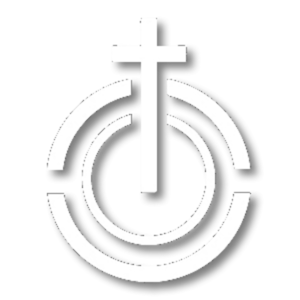By, Isam Itson III
Over the years I have met many refugees. People who immigrated to new countries fleeing disaster, war, or terror in their home countries. Back home they were professionals, but in their new country, they had to start over. Doctors driving taxis. Professors bussing tables at restaurants. Nurses working as hotel maids. Every one of them had to start over, well below their accustomed place of honor, wealth, and privilege, through no fault of their own. Victims of circumstance doing their best to survive and build new lives. They remind me of Noah in the bible whose story is told in Genesis chapters 6-9.
Like the Son of God in our previous article, Noah was the firstborn son of his father. He was the head of his family, the latest in a line of patriarchs responsible for the well being, fortune, and honor of his extended family. The text tells us that he was righteous in relationship to God, which means he was also just and considerate in relationship to his fellow humans. He was a man of integrity who took responsibility for the well being of his family and community, no matter how much it cost him. Noah was a great person.
Noah was blessed by God and highly favored by his peers. As the head of the extended family, Noah had younger brothers and sisters, as well as sons, and servants whose work he oversaw in the family business. Noah was the boss. He was honored for his dependability, wisdom, and vision. His way of life glorified God, provided well for his family, and was honored by the upstanding members of his community, all to the glory of God. He was a righteous, honorable man, with a good life and great family, born of commitment, godliness, and wisdom. He provided a secure livelihood and legacy for his children and grandchildren. Noah had the life that most of us are praying and working hard for, but relatively few attain.
When Noah was over 500 years old God spoke to him. God said he was going to flood the earth. God was finally going to judge the wicked who were killing the weak and powerless throughout the world. He told Noah to build an ark, a big floating box, to preserve select representatives of all the land animals. And for humans, God had selected Noah and his wife, their three sons, and their son’s wives. None of Noah’s brothers, sisters, cousins, nieces, nephews, in-laws, friends, or servants. God was starting over with Noah and his immediate family. This privileged family was blessed and honored by God to keep God’s purpose for Creation moving forward. Noah was 600 years old when the flood started.
And when they finally left the ark about a year later…they faced a wild, lifeless, wasteland. Their lives, their whole world, had been turned upside down. There was no-one left alive except for them. Destruction and devastation, everywhere. The bloated lifeless bodies of animals and people were everywhere. Their old life was gone. God’s word to them in their time of despair?…Start over. Genesis chapter 9 verses 1 and 7 both read, “Be fruitful, multiply, and fill the earth.” This is God’s blessing and purpose for us as we move forward after times of great loss and catastrophe. Raise children. God said it twice. Provide for their well being no matter what it costs you, and teach them to do the same for their children, and to honor the value of all people to God, from generation to generation. This honors God’s glory and purpose in the earth. This is God’s blessing, his happiness for them. Start over Noah.
What’s it going to take? They had to get back to work. Clear some space. Plant crops. Hunt. Raise animals. No excuses. Just like refugees today, but way worse. No government agencies. No relief organizations. No charities or fundraisers. No volunteers. No laborers to hire. We don’t even have a category for this type of desperation. It was Noah and his immediate family clearing the debris and rebuilding their lives in a new world, in a more harsh environment, with nothing familiar, no extended family, and no peers for Noah and his wife. Just them and God. In the same way, we have to keep living and loving God and others. We have to keep encouraging each other to love God and others. We have to keep working for the well being of others no matter how difficult our immediate circumstances. This is how we experience the blessing of God after suffering disaster, grief, and chaos.
Ph. 2:8- And being found in human form, he humbled himself by becoming obedient to the point of death, even death on a cross. The cross is where we die, so others may live. God’s will for Noah had cost Noah and his family dearly. According to the scriptures, Noah lived 350 more years. His obedience to God cost him the glory of his former righteous and respectable life. He suffered PTSD and survivor’s guilt for the rest of his life, so God’s ultimate purpose for creation could be realized. According to the Bible, every one of us on the earth today is a descendant of Noah and his wife. The Flood was Noah’s cross.
When Jesus was anticipating the shame and agony of his cross he prayed for over three hours and sweated blood as he asked God for another way out. But Jesus followed through. Previously, Jesus had said, “If anyone would come after me let him deny himself, take up his cross daily and follow me” – Luke 9:23. Our cross is where we embrace shame, suffering, and even death so others can enjoy the honor and privilege of life with God. God wants to bless us with the wisdom, strength, and resilience to start over if we have to, so that others may live to the praise of God’s glory and the fulfillment of God’s purpose. Blessing others, no matter what we suffer or lose in the process, is our God ordained privilege and blessing. And it is the beating heart of an authentic Christian testimony.
For Reflection
1. What gifts, talents, experiences, relationships, education, and financial resources has God entrusted to you?
2. Are you responsibly nurturing, investing, and developing them?
3. What would it mean for you to start over and rebuild your life after the disastrous loss of all that God has given you to this point?

